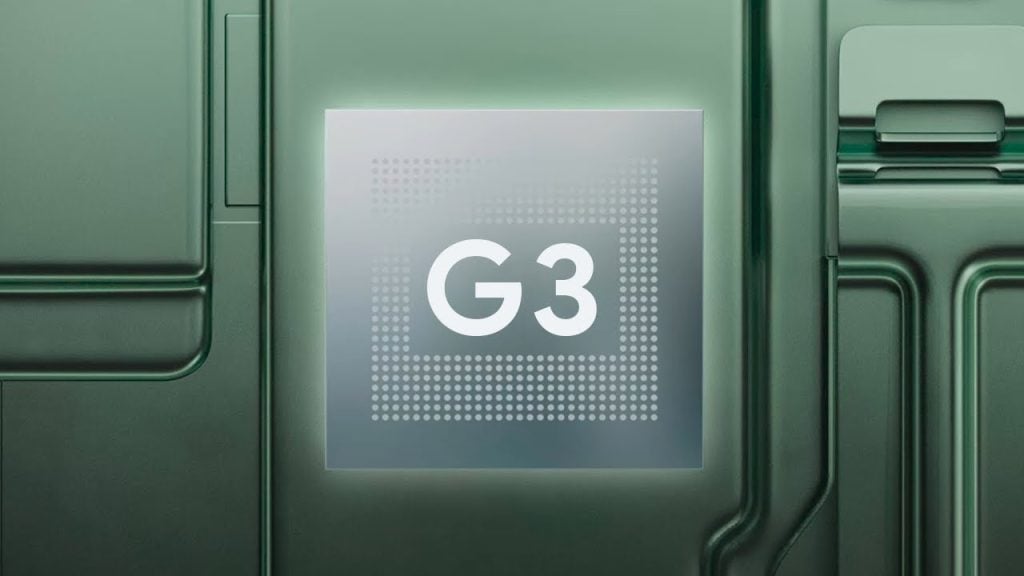Google is expanding its Pixel family, the company recently introduced the Pixel 7a at its I/O event. The company is now preparing to release the Pixel 8 series. The new phones are eagerly awaited by Android enthusiasts, and they are expected to have a number of unique features, including the Tensor G3 processor. Recently, some details about the Pixel 8’s processor have been leaked. Here are the details…
Google Tensor G3: Everything You Need to Know
The upcoming Tensor G3 has a major upgrade in its CPU block. It is completely redesigned and uses the latest 2022 ARMv9 cores. Google is moving away from the previous generation’s 4+2+2 core setup and adopting a unique nine-core configuration for the G3. This setup consists of four Cortex-A510s, four Cortex-A715s, and a single Cortex-X3. This is designed to provide a significant performance boost.

The chip also includes ARM’s advanced Memory Tagging Extensions, which are designed to help protect devices from memory-based attacks. Additionally, the Pixel 8 will only run 64-bit apps. Of course, Google’s surprises are not limited to these. The Tensor G3 in the Pixel 8 has a new graphics processor, the Arm Mali-G715. This is a 10-core processor, which is an improvement over previous models. The Pixel 8 could also be one of the first phones to offer ray-tracing capabilities. Google is clearly aiming for gaming and other graphics-intensive applications.
Artificial intelligence is a very popular topic these days, and it has found its way into the G3 processor. The Tensor Processing Unit is one of the defining features of Google’s custom chips, and the G3 has an enhanced version of it. This new TPU, codenamed “Rio,” is expected to deliver a major performance boost. This is a clear sign that Google is committed to AI and machine learning capabilities in its phones.
One of the most significant changes is the addition of a new digital signal processor (DSP). The DSP is responsible for handling common operations such as image and audio processing, and the new version is said to be more efficient, making the Pixel 8 faster and more power-efficient. Another major change is the addition of a new UFS controller. UFS stands for Universal Flash Storage, and it is the type of storage used in most smartphones.
The new UFS controller supports UFS 4.0 storage, which is the latest and fastest version of UFS. This means that the Pixel 8 will be able to read and write data to storage much faster than previous Pixel models. In addition to the new DSP and UFS controller, the Tensor G3 also includes a number of other improvements. These include a rearchitected CPU, advanced security features, and groundbreaking graphics capabilities.
RELATED:
- Realme GT Neo5 vs Honor 90 Pro: Specs Comparison
- Google Pixel Feature Drop June 2023 Update Introduces Reading Practice, Dark Web Report, And…
- Google Pixel 8 to support 12W wireless charging, reveals WPC certification
- Google Pixel Watch 2 will reportedly offer significantly improved battery life, a new processor,…
- Google Pixel’s Revamped Call Screening Feature is Simpler & Faster
(via)




